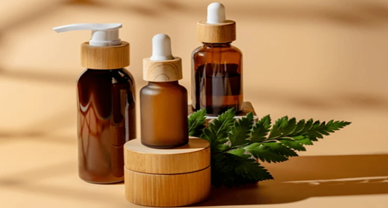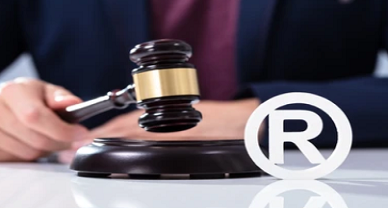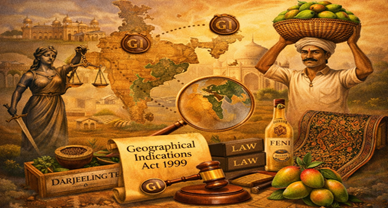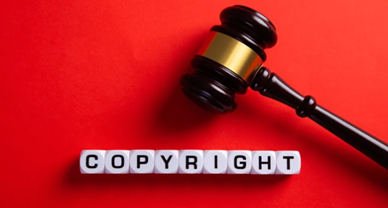Celebrity Beauty Brands: Who Owns the Face, the Fame, and the Trademark?
Introduction
In an era where fame is currency, beauty brands launched by celebrities have evolved into powerful brand empires. From Selena Gomez’s Rare Beauty to Kylie Jenner’s cosmetics line, the commercial success of these entities rests not just on star power, but on strong legal foundations. This blog explores the intricate landscape of trademark law, right of publicity, and trade dress as they shape the future of celebrity entrepreneurship.
“It’s (Haus Labs) about knowing that your identity—your image, your makeup—is your own. You deserve to protect it.”- Lady Gaga
In the era of influencer- led capitalism, beauty brands founded by celebrities is more than just a make-up line. These are complex brand empires based highly on personal identities of the celebrities, fan-consumer trust and intricate legal structure. These institutions include some of the world’s biggest, most well-known names like Rare Beauty by Selena Gomez, Fenty Beauty by Rihanna, Kylie Cosmetics by Kylie Jenner, Haus Labs by Lady Gaga and Huda Beauty by Huda Hiedi Kattan.
These entities look forward to not only capitalizing on their celebrity status but also utilizing all legal remedies and protection available for their commercial identity. At its essence, these businesses are built on a complicated foundation of Intellectual Property laws, various state laws concerning personality rights, and its trademarked trade address.
Capitalizing the Faces of the Known as a Trademark: The Right of Publicity
For a run-of-the-mill human being, one of the most precious resources is his identity. Identity encompassing his name, voice, face and likeness for instance. The same is protected by the Right of Publicity.
According to the International Trademark Association, Right to Publicity refers to an intellectual property right that protects against the misappropriation of a person’s name, likeness, or other indicia of personal identity- such as nickname, pseudonym, voice, signature, or photograph- for commercial benefit.[1] These rights outside of the United States of America are often widely known as ‘Personality Rights’ or ‘Rights of Persona’. Across the U.S. this refers to statutes that grant an individual the right to control and profit from the public commercial use of his identity.

While India does not have a rigid- well established legislation for this yet, the right of publicity has been developed through judicial interpretation in leading landmark judgements like that of Titan Industries Ltd. V. M/s Ramkumar Jewelers[2]. Wherein, the hon’ble Delhi High Court prohibited the defendants from commercially using the unauthorized images featuring Amitabh and Jaya Bachchan.
As an example, Selena Gomez’s Rare Beauty is more than a name brand, it is an extension of her identity and her personal brand which is intentionally curated and now safeguarded by sturdy IP laws. Kylie Jenner is yet another salient example of the same. Kylie has used her name and her face to intentionally create a branding influence of her lip kits, creating Kylie Cosmetics. She is also reportedly known to have legal trademark difficulties against Australian singer Kylie Minogue over the trademark and tradename- “Kylie” which further enlightens the significance of timely or early registration of IP.[3]
Who truly owns the brand?
Contrary to common belief, the outright ownership of brands by celebrities may not stand true in most cases. A majority of such brands fall under Limited Liability Companies (LLC) or Joint Ventures.
A Limited Liability Company is a non-incorporated business organization that retains both partnerships and corporation-like elements. It comprises investors and partners who can each own and control equal or pre-decided parts of business.[4]
It is a business structure allowed by the state statute.[5] These business structures often safeguard celebrity brands from legal and financial ramifications along with providing the ease of doing business. Rare Beauty, for instance, is not owned by Selena Gomez herself but by Rare Beauty LLC.[6] Gomez owns about 51% of the majority stake in the company according to Bloomberg’s analysis.[7]
Similarly, a recent milestone was shared by Hailey Bieber in May 2025, when the infamous e.l.f. Beauty acquired her brand- Rhode for a whopping $1 Billion.[8]
Serving as a testimony to the fact that not all major celebrity owned brands are truly owned by them. Such organizational forms only point towards the persisting issues such as licensing, royalties and liability of the members involved, especially the celebrity.
In India, Deepika Padukone’s 82°E is a skincare line co-founded by Deepika herself but managed by a private company with investors like DSG Consumer Partners, Prospect Capital, IDEO Ventures[9] and RSM Enterprises[10]. Similarly, Kay Beauty by Katrina Kaif is a joint venture with Nykaa Cosmetics. These structures not only determine brand control but also determine the legal ownership and asset management, both significantly maintaining brand equity for a long time.
Trademarks and Brand Identity
Celebrity brands depend on trademark protection to avoid misappropriation and harm to goodwill. Trademark registration includes the name(s), logo(s), slogan (s) and sometimes product line identifiers. As defined in Cadila Health Care Ltd. v. Cadila Pharmaceuticals Ltd., the Supreme Court defined trade mark as a “badge of origin”.[11]
The recent trademark and trade dress infringement suit filed by Kylie Cosmetics against Beauty Slay illustrates this loss of goodwill. Kylie allegedly claimed that Beauty Slay’s lip drip imagery, color scheme, and logo appearance were so close to Kylie’s. Further implying that there was confusion in the marketplace. The court granted a preliminary injunction against the actions of Beauty Slay and reiterated the power of registered trade marks and visual marks to secure brands. Moreover, in Yahoo Inc. v. Akash Arora & Anr.[12], it was reiterated that “Trademark protects brand goodwill and deception”.[13]
India’s Trademark Act, 1999 is on similar lines but enforcement is where the issue lies. Registration of the appropriate class (Class 3 for Beauty Products or Cosmetics) is the beginning of obtaining rights and pursuing infringers.
Trade Dress: Beyond Merely an Attractive Exterior
Trade Dress is the overall visual appearance of a product or packaging, when such an appearance indicates the source and is unique. Packaging in the cosmetics segment is a major part of the brand identity.
Rare Beauty boasts a distinctive- application based round blush shape that improves accessibility and enhances visual identity. Fenty Beauty boasts hexagonal compacts. Today’s courts are now starting to treat these features that render products unique as trade dress that can be protected. Agreed in a landmark case in the UK- the beauty brand Charlotte Tilbury successfully sued the supermarket Aldi for plagiarizing the packaging of her cosmetics, setting a handy precedent for enforcement of visual IP[14].
Courts in India have also identified trade dress protection in a number of classes of products under Section 2(1) (zg) of the Trade Marks Act, 1999.
Legal Challenges:
- Trademark controversies: Trademark issues occur when deceptively similar names, logos, slogans or trade dresses are adopted by competing or rival brands, especially in the same Class according to the NICE classification, in India particularly. Beauty brands like Rare Beauty is currently suing RareBeauty Cosmetics who filed a cancellation petition with the U.S. Patent and Trademark office (USPTO)[15].
- False Advertisements: Increasing regulatory attention caused due to false labels like “clean beauty”, “dermatologically tested” or “natural”, play an active role in deceiving the consumers more intricately when a celebrity’s name and fame is attached to the brand. This can be seen particularly in the wake of class actions against Aveeno and Neutrogena[16].
- Misuse of Image: In the age of social media, where generating pictures of well-known personalities and using them unauthorizedly is a mere click away, not only creates unconsented memes, deepfakes but also leads to violation of personality rights while deceiving the public. As held in Titan Industries Ltd. V. M/s Ramkumar Jewelers[17], unauthorized commercial use of a celebrity’s image continues to be legally actionable. Recently, the same was also observed with a TATA Starbucks and Dolly Chaiwala (overnight internet sensation)[18].
- Toxic Ingredients: A celebrity endorsed or owned brand often is seen in the light of “High Quality Products” due to the celebrity factor involved in it along with aesthetically pleasing packaging and marketing strategies. However, innumerous articles upon extensive research have found harmful toxins like mercury in skin lightening and anti-aging creams, chemicals in hair dyes and straighteners that are linked to uterine and breast cancer, etc.[19] Companies such as L’Oreal and Ben Nye[20] have been sued for the claimed inclusion of PFAS and asbestos in their products.
Solutions: Strengthening Legal Beauty Regimes
- Comprehensive Auditing of Intellectual Property: Conducting non exhaustive and consistent audits of IP to ensure that the all the trademarks, copyrights, designs and patents are appropriately registered, renewed and in compliance with the Trade Mark Act of 1999, the Copyright Act 1957, the Design Act 2000 and the Patents Act 1970.
- Transparency in Marketing Practices used: All the claims made while marketing must comply with the Consumer Protection E-Commerce Rules, 2020 and the Advertising Standards Council of India (ASCI) Code.
- International Trademark Strategy: Legal instruments like opposition proceedings, Cease and Desist letters, cancellation actions function as prompt remedies for addressing infringers. Hence, brands registered under the Madrid Protocol and other bilateral treaty jurisdiction often have an unspoken support and advantage.
- Safeguards for AI based Likeness: Legal structures ought to be consistent with international personality rights principles and provide indemnities for any unauthorized use of exploitation of digital identities. As a result, contracts must include morality clauses, rights concerning digital likeness and restrictions on AI usage to avoid deepfakes and identity exploitation.
The Future of Fame and Intellectual Property- Looking Ahead:
The interaction of celebrity branding and emerging technologies like AI is redefining the legal landscape. With virtual influencers, AI generated personas, and AI-generated voiceovers more prominent in endorsements, issues arise concerning ownership, authenticity, and legal protection of digital personas.
The law must evolve to create rights over AI-generated likeness, regulate commercial use of synthetic personas, and defend against abuse through deepfakes and deceptive advertising. Traditional personality rights theory and trademark law may perhaps need to be extended or reinterpreted in order to address the issues of the digitized, algorithmic marketplace.
Conclusion
Celebrity beauty brands’ fame can be explained by the ability to make products human with celebrity status.
Yet, their success is not dependent on publicity alone but on rigid, empowering legal foundations. From trademark and trade dress protection to business structures and personality rights protection, the law behind these brands count.
Thus, in an age where beauty is indeed business, and business is self, it is only the law that ensures celebrity businesses are not only fashionable but also well thought-out and commercial.
Author:– Jayani Pokar, in case of any queries please contact/write back to us at support@ipandlegalfilings.com or IP & Legal Filing.
References & Bibliography
- Titan Industries Ltd. v. M/s Ramkumar Jewellers, CS (OS) 2667/2011 (Del. HC).
- Kylie Minogue v. Kylie Jenner, Opposition No. 91219451 (T.T.A.B. Feb. 22, 2017).
- Yahoo Inc. v. Akash Arora & Anr., 78 (1999) DLT 285 (Del. HC).
- Charlotte Tilbury Ltd. v. Aldi Stores Ltd., High Court of Justice (U.K.), 2019 (unreported), discussed in Katie Mansfield, Charlotte Tilbury Wins Legal Battle Against Aldi Over Copycat Makeup, Mirror (Feb. 7, 2019), https://www.mirror.co.uk/news/uk-news/charlotte-tilbury-wins-legal-battle-13961861.
- Alyssa Bailey, Hailey Bieber’s Rhode Could Be Worth $1 Billion—Here’s What That Means for Her Net Worth, Elle (May 24, 2024), https://www.elle.com/culture/celebrities/a64916388/hailey-bieber-rhode-1-billion-deal-net-worth-effect/.
- Amanda Morris, These Everyday Products May Contain Toxic Chemicals, N.Y. Times (Feb. 15, 2023), https://www.nytimes.com/2023/02/15/well/live/personal-care-products-chemicals.html.
- Trade Marks Act, No. 47 of 1999, India Code (1999).
- Consumer Protection Act, No. 35 of 2019, §§ 2(1)(r), 21, India Code (2019).
- Copyright Act, No. 14 of 1957, India Code (1957).
- Designs Act, No. 16 of 2000, India Code (2000).
- Patents Act, No. 39 of 1970, India Code (1970).
- Advertising Standards Council of India, ASCI Code for Self-Regulation in Advertising (2023), https://ascionline.in.
- USPTO Trademark Entity Ownership Filing, Serial No. 88728512, https://tsdr.uspto.gov/.
- Rare Beauty LLC – Trademark Ownership & Corporate Structure, Economic Times, https://b2b.economictimes.indiatimes.com/news/entrepreneur/selena-gomezs-beauty-brand-just-made-her-a-billionaire/119526422.
- 82°E Funding Announcement, Fashion Network India, https://in.fashionnetwork.com/news/Deepika-padukone-s-brand-82-e-raises-7-5-million-from-dsg-consumer-partners-others,1469189.html.
[1] INTA, Right of Publicity, https://www.inta.org/topics/right-of-publicity/#:~:text=The%20right%20of%20publicity%20is,or%20photograph%E2%80%94for%20commercial%20benefit (last visited June 20, 2025).
[2] Titan Indus. Ltd. v. Ramkumar Jewellers, CS (OS) 2667/2011 (Del. HC).
[3] Kylie Minogue v. Kylie Jenner, Opposition No. 91219451 (T.T.A.B. Feb. 22, 2017)
[4] Cornell Legal Info. Inst., Limited Liability Company (LLC), https://www.law.cornell.edu/wex/limited_liability_company_(llc) (last visited June 18, 2025).
[5] Internal Revenue Serv., Limited Liability Company (LLC), https://www.irs.gov/businesses/small-businesses-self-employed/limited-liability-company-llc (last visited June 18, 2025).
[6] USPTO Trademark Entity Ownership Filing, Serial No. 88728512.
[7] Selena Gomez’s Beauty Brand Just Made Her a Billionaire, Econ. Times, https://b2b.economictimes.indiatimes.com/news/entrepreneur/selena-gomezs-beauty-brand-just-made-her-a-billionaire/119526422 (last visited June 18, 2025).
[8] Alyssa Bailey, Hailey Bieber’s Rhode Could Be Worth $1 Billion—Here’s What That Means for Her Net Worth, Elle (May 24, 2024), https://www.elle.com/culture/celebrities/a64916388/hailey-bieber-rhode-1-billion-deal-net-worth-effect/.
[9] Deepika Padukone’s Brand 82°E Raises $7.5 Million from DSG Consumer Partners, Others, Fashion Network, https://in.fashionnetwork.com/news/Deepika-padukone-s-brand-82-e-raises-7-5-million-from-dsg-consumer-partners-others,1469189.html (last visited June 19, 2025).
[10] Tracxn, Company Profile: 82°E, https://tracxn.com/d/companies/82e/__Drtbc7N9D0Zz20UwalEPlyBtsBKvcy5GcoWYTbvUGIQ (last visited June 20, 2025).
[11] DM Entm’t v. Baby Gift House, (2001) 5 SCC 73 (India).
[12] Yahoo Inc. v. Akash Arora & Anr., 78 (1999) DLT 285 (Del. HC).
[13] ICC Dev. (India) Ltd. v. Arvee Enters., 1999 SCC Online Del 373 (India).
[14] Charlotte Tilbury Ltd. v. Aldi Stores Ltd., High Court of Justice (U.K.), 2019 (unreported), discussed in Katie Mansfield, Charlotte Tilbury Wins Legal Battle Against Aldi Over Copycat Makeup, Mirror (Feb. 7, 2019) https://www.mirror.co.uk/news/uk-news/charlotte-tilbury-wins-legal-battle-13961861
[15] Rare Beauty LLC v. RareBeauty Cosmetics, Cancellation No. 92077994 (T.T.A.B. Sept. 3, 2021)
[16] In re: Neutrogena and Aveeno Aerosol Sunscreen Marketing, Sales Practices and Products Liability Litigation, MDL No. 3015 (S.D. Fla. 2021).
[17] Ibid footnote 2
[18] Dolly Chaiwala Is Not Starbucks India Brand Ambassador, India Today (June 18, 2025)
[19] Amanda Morris, These Everyday Products May Contain Toxic Chemicals, N.Y. Times (Feb. 15, 2023), https://www.nytimes.com/2023/02/15/well/live/personal-care-products-chemicals.html.
[20] David v. Ben Nye Co., Inc., No. BC588775 (Cal. Super. Ct. filed June 15, 2015).


